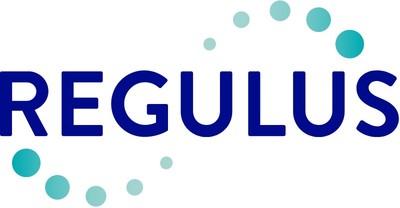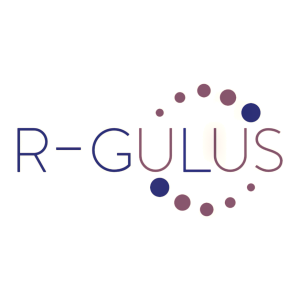Regulus Therapeutics Announces Positive Topline Data from the First Cohort of Patients in its Phase 1b Multiple-Ascending Dose (MAD) Clinical Trial of RGLS8429 for the Treatment of Autosomal Dominant Polycystic Kidney Disease (ADPKD)
- Statistically significant increases in mean PC1 levels at Day 85 and Day 86 (36%-41%)
- RGLS8429 well tolerated with no safety findings
- None.
Insights
Analyzing...
Statistically significant increase in urinary polycystin 1(PC1) after treatment with RGLS8429
Urinary polycystin exhibits anticipated pharmacokinetics/pharmacodynamics (PK/PD) correlation in patients with ADPKD
Company to hold conference call at 8:30 a.m. EDT today
In the first cohort, 12 subjects were randomized 3:1 to receive either 1 mg/kg of RGLS8429 or placebo every other week for three months. The study is designed to evaluate safety, pharmacokinetics, disease related urinary biomarkers, including urinary polycystin 1 (PC1) and polycystin 2 (PC2), height-adjusted total kidney volume (htTKV), and novel cyst imaging biomarkers. PC1 and PC2 are the protein products of the PKD1 and PKD2 genes respectively and have been shown to inversely correlate with disease severity.
RGLS8429 was well tolerated by all 9 subjects receiving active drug with no safety findings.
Increases in both PC1 and PC2 biomarkers were observed. Statistically significant increases in mean PC1 levels were observed at Day 85 and Day 86 (n=9) compared to baseline (
These data are consistent with what was observed with the Company's first-generation compound, RGLS4326, which showed a significant dose response between 0.3mg/kg and 1mg/kg of RGLS4326. Furthermore, the correlation between PK and urinary PC1 response at 1mg/kg is comparable between RGLS4326 and RGLS8429.
Urinary polycystin exhibits an appropriate PK/PD correlation to potentially serve as a key pharmacodynamic biomarker for the Company's program targeting miR-17 to treat ADPKD. Furthermore, the data suggest the opportunity to demonstrate increased urinary polycystin response at the higher doses being tested in subsequent cohorts in Phase 1b. Data from the second cohort, dosed at 2mg/kg, are anticipated in the first quarter of 2024.
"RGLS8429 continues to prove itself as a potential treatment for ADPKD. These data are encouraging and support that we are another step closer to establishing the optimal dosing range for the compound," said Preston Klassen, M.D., President and Head of Research & Development. "Cohort 1 meets expectations and continues to validate polycystin as a key pharmacodynamic marker for appropriate dose-ranging prior to a potential pivotal Phase 2 trial."
"These data strengthen our conviction in the potential of our lead compound, RGLS8429, to address the underlying genetic drivers of ADPKD," said Jay Hagan, CEO of Regulus Therapeutics. "Additionally, this study has increased our experience by incorporating renal imaging into our clinical study including the use of novel imaging biomarkers. We would like to thank everyone who has contributed to this study, most importantly the patients, their families, study investigators and collaborators. We look forward to providing additional updates as we continue to make progress with the second cohort of this Phase 1b study and initiate recruitment for the third cohort next month."
Approximately
The Phase 1b MAD study is a double-blind, placebo-controlled trial evaluating the safety, tolerability, pharmacokinetics and pharmacodynamics (PK/PD) of RGLS8429 in adult patients with ADPKD. The study will evaluate RGLS8429 treatment across three different dose levels, including measuring changes in polycystins, height-adjusted total kidney volume (htTKV), cyst architecture, and overall kidney function. The first cohort was dosed at 1 mg/kg of RGLS8429 or placebo every other week for three months. RGLS8429 was well tolerated with no significant safety findings in cohort 1. Patients in the second cohort are receiving 2 mg/kg of RGLS8429 or placebo every other week for three months. The Company also completed the 27-week chronic toxicity study of RGLS8429 in mice. No RGLS8429-related toxicity, including CNS adverse effects, was observed at any dose level up to the top dose of 300 mg/kg administered every other week.
More information about the MAD clinical trial is available at clinicaltrials.gov (NCT05521191).
Conference Call Information
The Company will host a conference call and live audio webcast on Wednesday, September 20, 2023 at 8:30 a.m. Eastern Daylight Time. To access the call, please dial (866) 652-5200 (domestic) or (412) 317-6060 (international). To access the telephone replay of the call, dial (877) 344-7529 (domestic) or (412) 317-0088 (international), passcode ID 6807709. The webcast and telephone replay will be archived on the Company's website at www.regulusrx.com following the call.
About ADPKD
Autosomal Dominant Polycystic Kidney Disease (ADPKD), caused by mutations in the PKD1 or PKD2 genes, is among the most common human monogenic disorders and a leading cause of end-stage renal disease. The disease is characterized by the development of multiple fluid filled cysts primarily in the kidneys, and to a lesser extent in the liver and other organs. Excessive kidney cyst cell proliferation, a central pathological feature, ultimately leads to end-stage renal disease in approximately
About RGLS8429
RGLS8429 is a novel, next generation oligonucleotide for the treatment of ADPKD designed to inhibit miR-17 and to preferentially target the kidney. Administration of RGLS8429 has shown robust data in preclinical models, where clear improvements in kidney function, size, and other measures of disease severity have been demonstrated along with a superior pharmacologic profile in preclinical studies compared to Regulus' first-generation compound, RGLS4326. Regulus announced completion of the Phase 1 SAD study in September 2022. The Phase 1 SAD study demonstrated that RGLS8429 has a favorable safety and PK profile. RGLS8429 was well-tolerated with no serious adverse events reported and plasma exposure was approximately linear across the four doses tested and is similar to the PK data from the first-generation compound. In April 2023, Regulus announced completion of enrollment for the first cohort of patients in the Phase 1b MAD study. The first cohort was dosed at 1 mg/kg of RGLS8429 or placebo every other week for three months. RGLS8429 was well tolerated with no significant safety findings in cohort 1. Patients in the second cohort are receiving 2 mg/kg of RGLS8429 or placebo every other week for three months. The Company also completed the 27-week chronic toxicity study of RGLS8429 in mice. No RGLS8429-related toxicity, including CNS adverse effects, was observed at any dose level up to the top dose of 300 mg/kg administered every other week.
About Regulus
Regulus Therapeutics Inc. (Nasdaq: RGLS) is a biopharmaceutical company focused on the discovery and development of innovative medicines targeting microRNAs. Regulus has leveraged its oligonucleotide drug discovery and development expertise to develop a pipeline complemented by a rich intellectual property estate in the microRNA field. Regulus maintains its corporate headquarters in
Forward-Looking Statements
Statements contained in this presentation regarding matters that are not historical facts are "forward-looking statements" within the meaning of the Private Securities Litigation Reform Act of 1995, including statements associated with the Company's RGLS8429 program, the expected timing for initiating clinical studies, potentially achieving therapeutic efficacy and clinical translation for ADPKD patients, the expected timing for reporting topline data from the ongoing clinical study and the timing and future occurrence of other preclinical and clinical activities. Because such statements are subject to risks and uncertainties, actual results may differ materially from those expressed or implied by such forward-looking statements. Words such as "believes," "anticipates," "plans," "expects," "intends," "will," "goal," "potential" and similar expressions are intended to identify forward-looking statements. These forward-looking statements are based upon Regulus' current expectations and involve assumptions that may never materialize or may prove to be incorrect. Actual results and the timing of events could differ materially from those anticipated in such forward-looking statements as a result of various risks and uncertainties, which include, without limitation, the approach we are taking to discover and develop drugs is novel and may never lead to marketable products, preliminary or initial results may not be indicative of future results, preclinical and clinical studies may not be successful, risks related to regulatory review and approval, risks related to our reliance on third-party collaborators and other third parties, risks related to intellectual property, risks associated with the process of discovering, developing and commercializing drugs that are safe and effective for use as human therapeutics and in the endeavor of building a business around such drugs, and the risk additional toxicology data may be negative and our need for additional capital. These and other risks are described in additional detail in Regulus' filings with the Securities and Exchange Commission, including under the "Risk Factors" heading of Regulus' most recently filed quarterly report on Form 10-Q. All forward-looking statements contained in this press release speak only as of the date on which they were made. Regulus undertakes no obligation to update such statements to reflect events that occur or circumstances that exist after the date on which they were made.
![]() View original content to download multimedia:https://www.prnewswire.com/news-releases/regulus-therapeutics-announces-positive-topline-data-from-the-first-cohort-of-patients-in-its-phase-1b-multiple-ascending-dose-mad-clinical-trial-of-rgls8429-for-the-treatment-of-autosomal-dominant-polycystic-kidney-disease-adp-301932766.html
View original content to download multimedia:https://www.prnewswire.com/news-releases/regulus-therapeutics-announces-positive-topline-data-from-the-first-cohort-of-patients-in-its-phase-1b-multiple-ascending-dose-mad-clinical-trial-of-rgls8429-for-the-treatment-of-autosomal-dominant-polycystic-kidney-disease-adp-301932766.html
SOURCE Regulus Therapeutics Inc.








